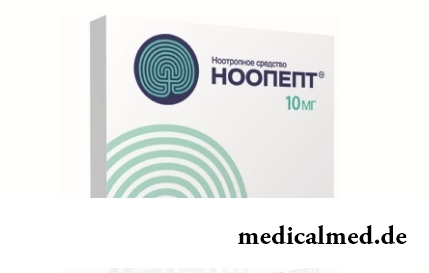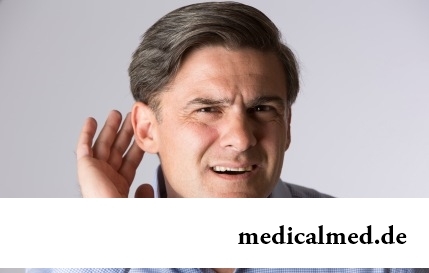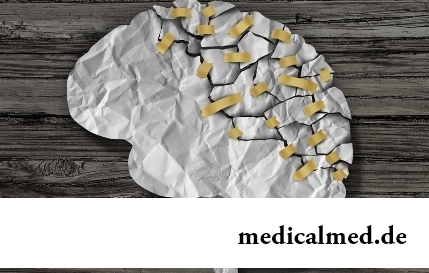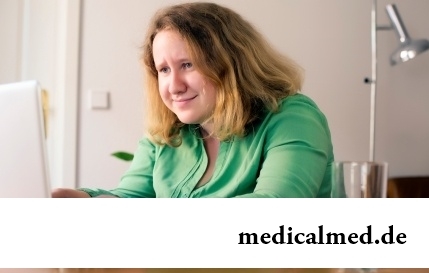





Dysthymia
The dysthymia represents a mental disorder with existence of sad mood, a pessimistic view on  private life and scepticism to all positive in public life. This state less heavy, than depressive frustration, but is close and preceding it.
private life and scepticism to all positive in public life. This state less heavy, than depressive frustration, but is close and preceding it.
Reasons and symptoms of a dysthymia
Symptoms of a dysthymia are slight and bespokoynost, breakdown and bystry fatigue, melancholy, gloomy thoughts, pessimistic views and complexes are shown in the form of melancholy, depression, an acrimony.
Gradually this mental disorder leads to decrease in a self-assessment, senselessness of life, unwillingness to communicate with other people and to be in society someone. The person becomes closed, gloomy and lonely, loses social relateds and desire to be engaged in something.
The dysthymia often arises at people with disorders of the central nervous system, depressive genetic predisposition and disturbances of production of serotonin in a brain. Physiological pathologies, stresses and hormonal disturbances can be the reasons diseases.
Physical symptoms of a dysthymia are indispositions, an asthma, coordination loss, confusion of consciousness, tearfulness, drowsiness, slackness and apathy, unmotivated and spontaneous uneasiness, a lock, sleeplessness, nightmares, digestive disturbances.
At the people inclined to dejectedness, in the absence of emotional and psychological support the dysthymia develops in a persistent depression.
The dysthymia of somatic type is shown in the form of complaints to the general state of disrepair of a nervous system, arrhythmia and tachycardia, alarming attacks.
This disease strongly affects a physical condition of patients, reducing their activity, causing powerlessness and an asthenic state.
The characterologic type of a dysthymia is expressed in resistant pessimism, depressive outlook and a complex of continuous failures. This type of a disease is shown at people silent, closed, sensitive to troubles and weak concerning vital difficulties.
Medical researches established that the dysthymia can be not only a disease of people with melancholic temperament, but also the frustration connected with external factors, children's psychological injuries and genetic predisposition to depressions.
Diagnosis of a disease
 Definition of a dysthymia requires carrying out regular clinical inspections several times within two years. For establishment of the exact diagnosis it is necessary to analyze symptoms and to conduct a statistical research of mental disorders on the basis of the following criteria:
Definition of a dysthymia requires carrying out regular clinical inspections several times within two years. For establishment of the exact diagnosis it is necessary to analyze symptoms and to conduct a statistical research of mental disorders on the basis of the following criteria:
- decrease or increase in appetite;
- sleeplessness and other sleep disorders;
- fatigue and fatigue;
- pessimism, the lowered self-assessment;
- low working capacity;
- isolation and detachment from the social environment.
The psychologist and the neurologist hold constant consultations with the patient and reveal existence of psychotic frustration, symptoms of a mania or hypomania, the mixed psychological states.
Treatment of a dysthymia
Treatment of a dysthymia needs to be begun with establishment of the reasons and symptoms of a disease, and also with definition of a physical condition of the patient. The course of drug treatment includes antidepressants (Prozac, tsipramit, etc.) and monoamine oxidase.
The most effective treatment of a dysthymia is followed by family and interpersonal psychological therapy. Also cognitive therapy will allow to raise a self-assessment and to improve the general emotional condition of the patient.
Individual therapy can alternate with the group psychological occupations allowing to improve interpersonal communication of patients, to fix their situation in the social environment and to increase the personal importance.
People who got used to have breakfast regularly have obesity much less often.

The modern person not always manages to find housing in the environmentally friendly region and such work which would not do harm здо...
Section: Articles about health
Water with a lemon - idle time in preparation drink which supporters of a healthy lifestyle already managed to appreciate. Used in a warm look and on an empty stomach, it is one of the most useful prophylactics allowing to prevent tens з...
Section: Articles about health
Milk and products of its processing by right occupy one of the main places in a diet of the modern person. They contain proteins, necessary for normal life activity, fats, vitamins and microelements, and are an important part of various medical diets....
Section: Articles about health
For many women the word "fat" sounds as a sentence. In aspiration to an ideal figure they try to exclude, first of all, from with...
Section: Articles about health
Coffee – favourite drink of many. For the last decades it more than once already declared very harmful, extremely useful and even necessary for normal life activity. In spite of the fact that this product became for us usual for a long time, exists much...
Section: Articles about health
Musicotherapy – a treatment method which caused and causes a set of a controversy concerning its efficiency. However the facts are relentless: during the numerous researches curative impact of music on an organism was scientifically confirmed. Since then in a number of the countries the technique is included complex therapy of diseases of cardiovascular and respiratory system, dorsodynias and a backbone, psychosomatic disturbances and many other illnesses. The musicotherapy in a pedi is especially widely applied...
Section: Articles about health
Separate food - the system of meal based on digestion physiology which is carried to improvement methods. In opinion д...
Section: Articles about health
For anybody not a secret that our country is one of the most "drinking" in the world. At clear understanding that the use of hard alcoholic drinks – occupation extremely harmful, most of Russians belong to alcoholism with unjustified loyalty. These...
Section: Articles about health
Many of us, probably, noticed more than once that from intellectual loadings at some point the brain as though "overheats" and "assimilation" of information is strongly slowed down. Especially this problem urgent for persons of age becomes more senior than fifty years. "Already badly I think", "the head will burst now", "memory as if is disconnected" - here that wants to be told at the time of information overload....
Section: Articles about health
Osteoporosis this general disease which main sign is decrease in density of a bone tissue. On width распростран...
Section: Articles about health
Impossibility to conceive the child – a trouble of many Russian families. During quite long time was considered that main "culprits" of troubles such are women. Modern physicians claim that the situation is different: about a half of failures at...
Section: Articles about health
Partial and the more so full loss of hearing significantly reduces quality of life. Difficulties with communication lead to loneliness and isolation. The person who badly hears experiences difficulties with social and professional implementation, quite often has problems in private life....
Section: Articles about health
"Epilepsy" doctors made the diagnosis in antique times. Displays of an illness and pattern of its development are very well studied. Odes...
Section: Articles about health
Contrary to popular belief, the multiple sclerosis (MS) is not connected neither with sclerous changes of walls of vessels, nor with age forgetfulness and problems with concentration of attention. This disease has the autoimmune nature. Pathological process of a vyrazh...
Section: Articles about health
The fatigue, sleep debt, disturbances of food, bad mood, vagaries of the weather – all these circumstances badly affect our appearance. Especially the person suffers: skin becomes flabby, loses healthy color, becomes covered by wrinkles, zones of hypostases and dark circles under eyes appear. It is not always possible to be saved from influence of aggressive factors, but we are quite able to minimize its effects. For this purpose usually apply the cosmetics and procedures helping увлаж...
Section: Articles about health
The number of long-livers is very small. One person from 5 thousand lives up to age of 90 years, and the centenary boundary steps only about...
Section: Articles about health
For the city dweller the fitness is the most convenient sport. It is enough to acquire the subscription to the gym to get access to various apparatuses and an opportunity to train under the leadership of the experienced consultant. Many consider fitness on...
Section: Articles about health
Stroke (acute disorder of cerebral circulation) – one of the most widespread neurologic diseases. Annually in the world more than 6 million people die of this illness. From the survived patients about 80% become disabled people, and nearly a third from them needs afterwards permanent care. In fact, the stroke creates a situation at which a part of cells of a brain loses blood access, loses an opportunity to receive oxygen and nutrients, and perishes. As a result of a razviv...
Section: Articles about health
The advantage of swimming for the person is so high that this sport is not only the most popular, but also is widely applied in copper...
Section: Slideshow
Such trouble as the milkwoman's attack, at least once in life happened almost to each woman. Prevalence of a disease is explained by the fact that the causative agent of an illness belongs to the so-called opportunistic microflora living on mucous an obol...
Section: Articles about health
Wood louse – the ordinary-looking unpretentious plant extended in all territory of our country. It quickly expands, and sometimes fills sites, bringing a lot of chagrin to gardeners. Perhaps, they would be upset less if knew that the wood louse is valuable medicinal raw materials. A, C and E vitamins, organic acids, tannins, wax, saponins, lipids, mineral salts and essential oils are its part....
Section: Articles about health
Women quite often suffer from complexes concerning the sizes of the bust. Strangely enough, reason душевног...
Section: Articles about health
Obesity is called a disease of 21 centuries, for the last 100 years the number of the people suffering from excess body weight considerably increased. Statistically, on Earth already about 1,5 billion corpulent people, and 500 million from them have extreme degree of completeness, are negative...
Section: Articles about health
Long time antibiotics were considered as a panacea from all diseases and were appointed even at insignificant symptoms of an infection. Even now not everyone knows in what force of antibiotics how and when they should be accepted. Let's discredit 7 popular myths about such drugs....
Section: Articles about health
Urogenital candidiasis (milkwoman) – a fungal infection which annoys unpleasant feelings in the field of generative organs, сопр...
Section: Articles about health
At this plant there are a lot of names: tuberiferous sunflower, Jerusalem artichoke, solar root, earth pear. Contrary to popular belief, it is not an exotic plant at all. The wild girasol grows in a midland of Russia practically everywhere: at the edges of roads...
Section: Articles about health
All are familiar with cold, and practically everyone believes that he has sufficient knowledge and experience that correctly to treat it. In practice most of people makes mistakes in attempts to get rid of rhinitis, and divides numerous delusions it....
Section: Articles about health
